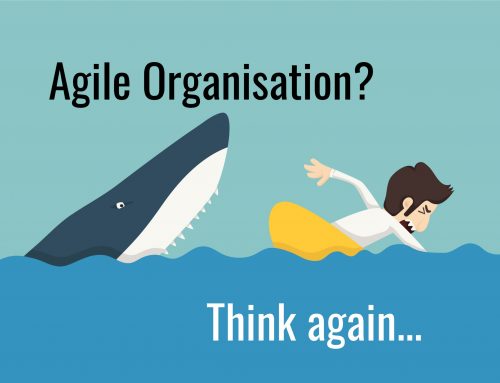2021/11/08
In my encounters with many managers and leaders over the last 15 years, I have noticed again and again: The really (!)[1] effective and successful managers and leaders had one thing in common.
It sounds simple, and it is simple: it is the ability to focus. Other words for focus are concentration, mindfulness, inner clarity.
What does it mean exactly? Peter F. Drucker, probably the best-known management thought leader, said succinctly: “First things first. And second things not at all”.
This also reads simply, but in practical implementation it is by far not as simple as some people think. The so-called Eisenhower principle [2] is therefore often used as a methodological tool. The following figure [3] shows the logic:
- Highest attention is paid to A-topics: important and urgent (quadrant I). I have to take care of it now.
- B-topics have second highest priority: they are important but not urgent (quadrant II). I can plan for these issues and don’t need to take care of them right now.
- C issues are urgent but not important (quadrant III). They can be delegated.
- D issues have trash status. I don’t bother with them at all.
Crucial to the actual success of this method is one thing. And that is what separates the effective and successful managers and leaders from everyone else. Focus is consistent with mindfulness and letting go.
What does that mean? For me to be able to focus myself, my team, my organization, I need an inner clarity. An inner attitude that I can only achieve by being mindful of myself, my team and my organization. This means working on oneself, listening to oneself and being aware of oneself.
Whoever consciously practices this listening to oneself will automatically perceive (learn) what triggers the focus and concentration internally as well as externally: Is it really right what I, what we are doing? Am I doing what is important? Is my team, my organization doing what is important? Am I taking care of what really matters? Am I willing to delegate and let go of all that I don’t have to do?
An implementation suggestion to anyone who wants to focus: Write down all the important tasks, projects and issues they want to move in the next 6-12 months. Prioritize them according to the principle above. If you have more than five things you want to pursue, rigorously cross off what is not mandatory. And then: pursue ironcladly and consistently only these items – although you should be prepared to adjust this list regularly. Because: Plans are only good as long as they are valid. But plans also help to prove their effectiveness in a planned and not haphazard way.
Dr. Markus Griesbeck, Management Expert St. Gallen and author of the book: Management. The Essence. Published by Handelsblatt Fachmedien Verlag.
[1] It is possible to measure, evaluate and/or assess fairly accurately when a manager or leader is effective. Surprisingly, some managers themselves are not clear and aware of this (and in some cases, neither are the partners, shareholders, equity or debt investors). For more details, see one of my views below.
[2] The namesake, U.S. President and Allied General Dwight D. Eisenhower probably did not invent this method and probably did not practice it. Nevertheless, it is attributed to him.
3] From: Griesbeck, Markus. Management. The essence. Handelsblatt Fachmedien Verlag. 2019. S. 117.






